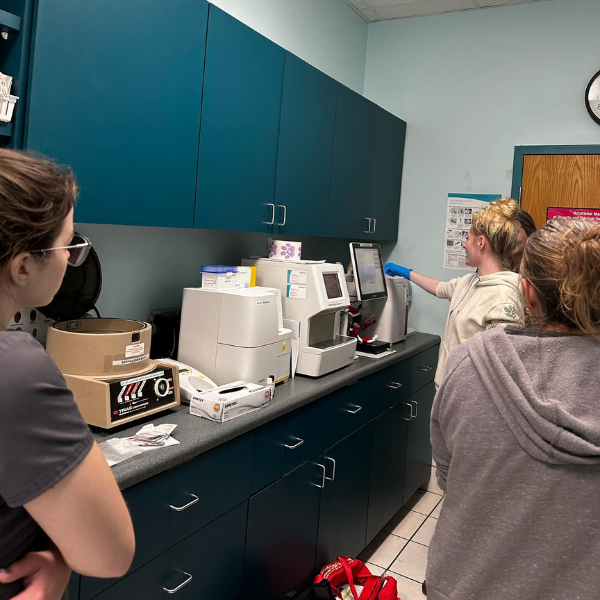Pet In-House Laboratory
Our dedicated in-house laboratory in Palm Harbor, FL, allows us to perform essential diagnostic tests on-site so we can diagnose and treat health concerns without delay.
Pet In-House Laboratory in Palm Harbor, FL
At TLC Animal Hospital in Palm Harbor, FL, we prioritize the health and well-being of your pets by first thoroughly examining their individual condition. With a variety of tests available in our lab, we can gather critical information about your pet’s health in a timely manner, ensuring the right course of treatment is determined as soon as possible.

Why We Use an In-House Laboratory for Pet Diagnostics
An in-house laboratory is a valuable tool in veterinary medicine because it allows for immediate testing and quicker results. TLC Animal Hospital is equipped with a full Pet In-House Laboratory that enables us to perform tests such as bloodwork, urinalysis, and parasite screenings on-site.
Some of the key tests performed in our lab include:
- Complete Blood Count (CBC): Identifies infection, anemia, and overall immune health.
- Biochemistry Panels: Assesses kidney, liver, and pancreatic function.
- Urinalysis: Detects urinary tract infections and kidney issues.
- Fecal Exams: Identifies intestinal parasites that can affect your pet’s digestion.
Benefits of a Pet In-House Laboratory
Our Pet In-House Laboratory offers several important benefits for both pets and their owners:
- Quick Diagnosis: Immediate access to test results allows us to diagnose health issues promptly and begin treatment without delay.
- Comprehensive Care: In-house testing means we can monitor your pet’s condition closely and adjust treatment plans as needed based on real-time data.
- Convenience: With testing done on-site, your pet won’t need to be sent to outside labs, saving you time and reducing the number of visits.
When Does Your Pet Need In-House Laboratory Testing?
Routine diagnostic testing is recommended during wellness exams to catch any underlying health issues early. However, your pet may also need testing if they exhibit any of the following symptoms:
- Lethargy or weakness
- Vomiting or diarrhea
- Unexplained weight loss
- Increased thirst or urination
- Behavioral changes

